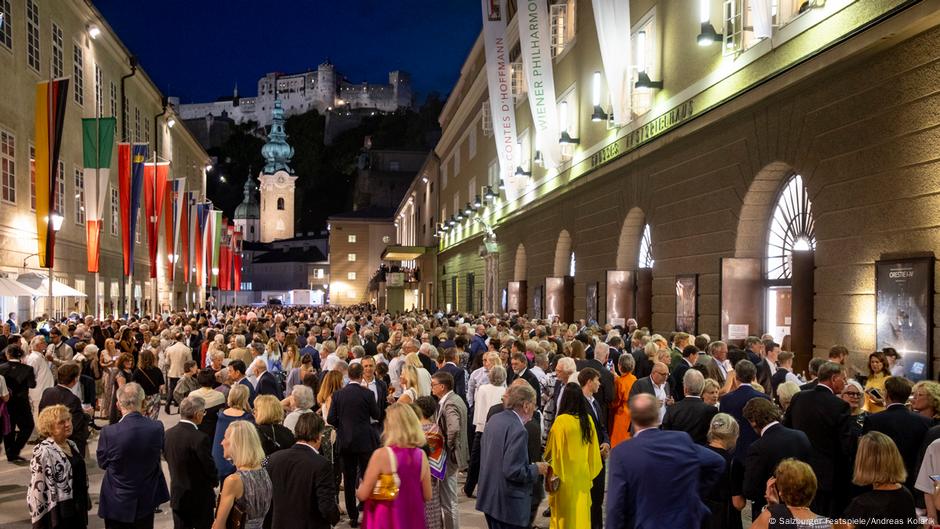
Reflecting the World Through Art
This year's program at the Salzburg Festival is a mirror of the current global situation. Conflicts and power-hungry leaders are dominating the world stage, but the festival aims to provide hope and insight through its artistic offerings.
Theater has always been a reflection of human emotions and experiences. This year's lineup, curated by artistic director Markus Hinterhäuser, highlights the ongoing crises around the globe. From ancient rivalries to events from the First World War, the festival explores themes that resonate deeply with today's reality.
Power and Its Consequences
Throughout history, there have been figures like Trump and Putin, individuals driven by an insatiable desire for power. This universal pursuit has inspired many operas, which continue to captivate audiences. For example, George Frideric Handel's "Giulio Cesare in Egitto" tells the story of Roman general Julius Caesar, while Gaetano Donizetti's "Maria Stuarda" focuses on Scottish queen Mary Stuart. Mozart's "Mitridate, re di Ponto" depicts the ruler of the fallen empire of Pontus, and Verdi's "Macbeth" portrays the royal army commander who becomes king. Additionally, "The Last Days of Mankind," based on Karl Kraus' book, delves into the horrors of World War I.
These historical figures often face the collapse of their power, reacting in various ways — some with rigidity, others with fear or despair. The performing arts serve as a lens, revealing the different scenarios of their downfall and offering audiences a chance to reflect and change.
A Program for Everyone
The festival offers a wide range of performances, with 174 opera, drama, and concert events available. Musical theater remains a key focus, featuring 12 productions spanning from Baroque to contemporary works. The annual production of "Jedermann" (or "Everyman") on the steps of the Salzburg Cathedral exemplifies the festival's commitment to inclusivity, following the guiding principle set over a century ago by Max Reinhardt and Hugo von Hoffmannsthal.
Notable contributors include director Peter Sellars and conductor Esa-Pekka Salonen, who will present a new production titled "One Morning Turns into an Eternity." This innovative piece combines Arnold Schoenberg's monodrama "Erwartung" with Gustav Mahler's "Der Abschied" from "Lied von der Erde." Another highlight is the play "The Blizzard," based on a novel by Russian writer Vladimir Sorokin, who fled from Putin's regime. The story follows a young doctor searching for light and hope amidst a deadly storm.
Solidarity with Artists
Despite controversies, the festival continues to support artists who have distanced themselves from oppressive regimes. Russian directors such as Kirill Serebrennikov, Dmitri Tcherniakov, and Evgeny Titov are participating in this year's lineup. Their works, including "The Blizzard" and "Giulio Cesare in Egitto," reflect a strong sense of solidarity with those opposing authoritarian rule.
Markus Hinterhäuser emphasized his admiration for the Russian pianistic tradition, noting that renowned pianists like Grigory Sokolov, Arcadi Volodos, Evgeny Kissin, Daniil Trifonov, and Alexander Malofeev will perform in Salzburg. They will honor Dmitri Shostakovich with concerts marking the 50th anniversary of his death.
Additionally, Ukrainian author Marianna Kiyanovska will read from her acclaimed work "The Voices of Babyn Yar," recounting the massacre of over 30,000 Jews by the Nazis in 1941. This event underscores the festival's commitment to remembering and honoring the past while looking toward a more hopeful future.
